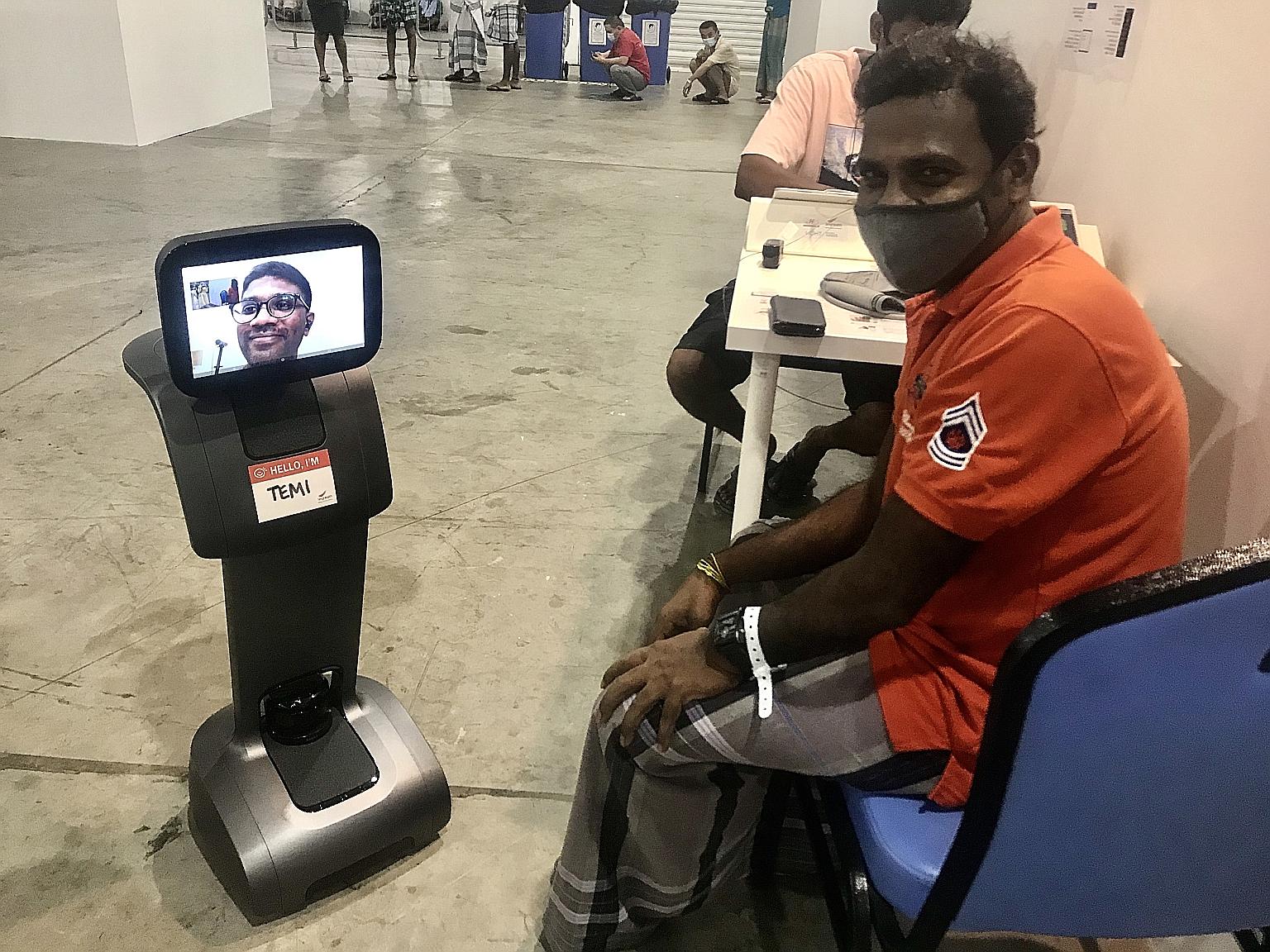Coronavirus pandemic
Coronavirus: Temi reduces exposure of healthcare staff to patients
As the Covid-19 outbreak continues to cause disruptions, organisations here have had to adapt to 'business as usual' in a pandemic world. From robot cleaners to remote physiotherapy sessions to digital management platforms, Timothy Goh looks at five different types of technology that have been adopted here in the fight against Covid-19, and what the future might look like.
Sign up now: Get ST's newsletters delivered to your inbox

A patient at SingHealth's community care facility at the Singapore Expo having a teleconsultation via Temi, a remote-controlled robot.
PHOTO: SINGHEALTH
Timothy Goh
Follow topic:
Embracing tech in Covid-19 fight
Robots have reduced the amount of time that front-line healthcare workers spend with Covid-19 patients at SingHealth's community care facility at the Singapore Expo by six times.
These workers are at relatively high risk of infection given the way community care facilities are set up, said Associate Professor Tan Hiang Khoon, medical director of SingHealth's facility at the Expo.
Unlike in hospitals, where patients are in negative pressure rooms, the Expo has no such facilities. Because round-the-clock medical support has to be provided at the facility, staff had to spend a lot of time around the infected.
"Once you enter the facility, you're in a hot zone - you're literally immersed in a surrounding where there are 800 patients or more. So we wanted to find a way that could reduce dwell time for our staff working in the facility," he said.
A solution came in the form of remote-controlled robots known as Temi, which let doctors and nurses communicate with patients via a screen mounted on wheels.
This means the team on duty can remain stationed nearby, outside the patients' living quarters, and enter only for essential activities such as urgent interventions.
Prof Tan said that within the Expo, the robots have cut the amount of time doctors and nurses need to spend in the facility from 144 man-hours per night to around 24.
The robots can also deliver medication, conduct patrols and conduct exercise sessions for patients on screen.
There are now eight such robots deployed at SingHealth's Expo facility, and four at its hospitals.
Prof Tan added that SingHealth plans to upgrade the robots to allow them to respond to patients autonomously, and is looking at deploying them further post-Covid-19.
He said the medical community has not always been the first to embrace technology, "but Covid has forced us to adopt a new model of care because any alternative seems to be a less safe choice. By nature, we're very conservative, risk averse, but this time round, technology has shown us that it's indeed a much safer way to do things".

